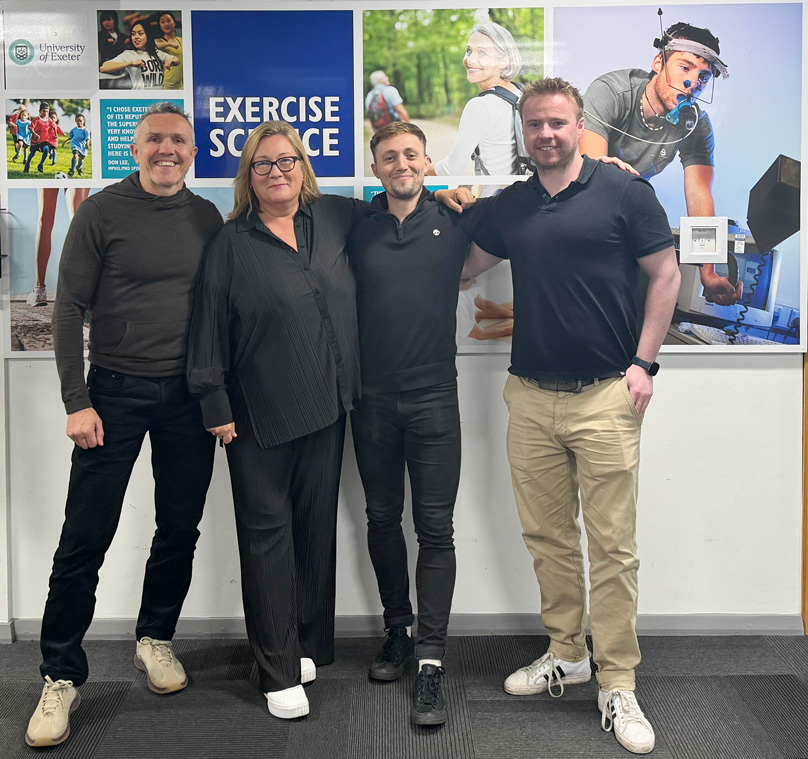“The symposium held in Exeter on 'Performance under pressure' was in hybrid mode to allow collaborators from Australia, New Zealand and the UK to come together to share current research and discuss ways of working together in the future,” said UQ School of Education’s Associate Professor Elizabeth Edwards.

Among many projects presented was world-leading research using virtual reality to assist elite athletes to understand their responses to pressure during performance. This was developed by Professors Mark Wilson and Sam Vine from the University of Exeter’s School of Public Health and Sport Sciences.
“I first proposed Attentional Control Theory – Sport almost a decade ago, to explain performance under pressure in the sporting context. Since its inception, we’ve learned that real world data and experimental studies can be used to inform appraisal-based interventions which assist athletes to maximise performance in high-stakes pressure environments where errors are likely,” said Professor Wilson.
“We have translated our findings in work with Olympic teams such as the English Pentathlon team and the Irish Sailing team.”
UQ’s Associate Professor Edwards presented research on the training of mechanisms most vulnerable to pressure. Her strategy shows promise for reducing anxiety and improving sporting and other performance.
UQ PhD student Linh Khanh Chu discussed a current proof-of-concept study using a cognitive control training paradigm with children to reduce anxiety and increase math performance in classrooms in South East Queensland.
Associate Professor Robert Vaughan from University of West London reported on a series of studies showing the importance of mental flexibility in performance on a basketball free-throw task.
Dr So Hyun Park from University of Waikato and Dr Jack Brimmell at University of Worcester shared research examining footballers’ decision-making during play.
“Since completing my PhD under the guidance of Associate Professors Edwards and Vaughan, I have become increasingly interested in the role visual attention plays in what is commonly called ‘choking under pressure’,” said Dr Brimmell.
The QUEX-funded symposium provided researchers and their respective lab groups with opportunities to share ideas, demonstrate knowledge exchange, provide peer review and network with each other.
“Our two days of talks allowed us to plan a ‘special issue’ for an international journal containing our individual work premised on Attentional Control Theory – Sport. The relationships built will leave a legacy well beyond the symposium,” said Associate Professor Edwards.
“We are also planning further 6-monthly get-togethers, collaborations, shared PhD supervision, and grant opportunities.”

There are other opportunities available now to both researchers and professional staff to be involved with the QUEX Institute.
A new flagship QUEX Institute Strategic Grant Scheme offers support for an area of shared world-leading excellence, strategic alignment and collaboration to deepen the partnership. Applications, closing 22 April, must align strategically and demonstrate excellence in one or more of the QUEX themes. For more information, contact QUEX Institute Strategic Grant Scheme.
The 2-day 'Performance under pressure' symposium was supported by the QUEX Institute – a partnership of The University of Queensland and the University of Exeter.



